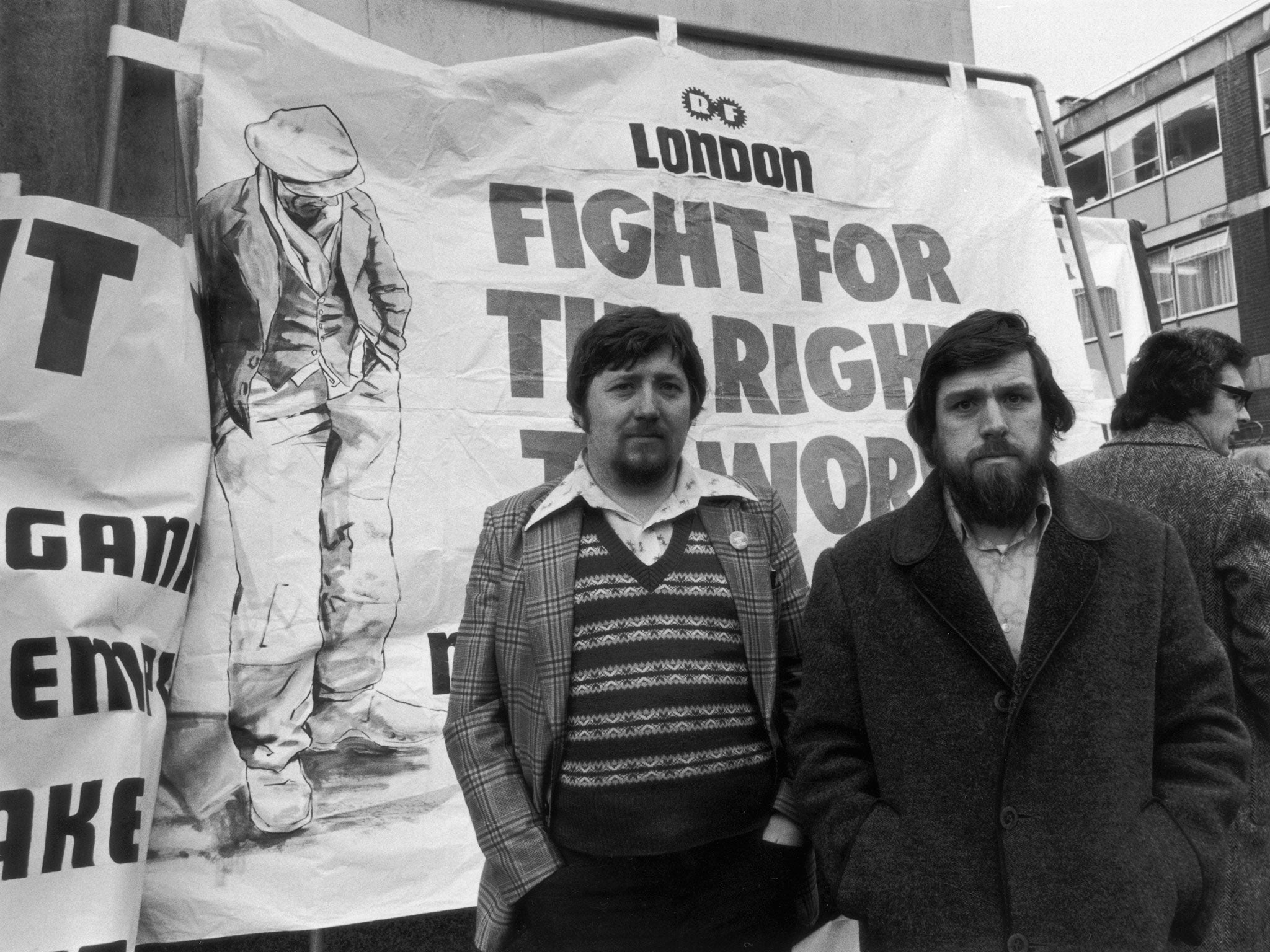Play to 'shine new light' on Britain’s troubled history of industrial relations
United We Stand portrays events that took place during the first trial against 24 strike organisers

A radical new dramatisation of the prosecution of building workers – including the actor Ricky Tomlinson – during a national strike in the 1970s is set to shine new light on one of the darkest and most controversial episodes in Britain’s troubled history of industrial relations.
The Royle Family star was sentenced to two years in jail for his part in organising the protest against the low pay and treacherous working conditions which characterised the construction industry.
The new play, United We Stand, portrays events which took place during the first of three trials against 24 strike organisers, in which the actor was found guilty of conspiracy to intimidate, unlawful assembly and affray at Shrewsbury Crown Court in October 1973.
Tomlinson, one of six pickets to be jailed, said he was delighted the play was being staged and said it would bring new information into the public eye about a miscarriage of justice still unacknowledged by the political establishment.
“It has always been the pickets’ view that there was government interference in bringing the charges of conspiracy against us. We were picked up and charged five months after the strike finished. During the dispute no one was cautioned or arrested,” he said. “The Government continues to withhold documents relating to the trials at Shrewsbury. They say to release them would breach Section 23 of the Freedom of Information Act which deals with matters of national security,” he added. The new play, by Neil Gore, will tour the UK in the autumn. The production combines drama and the music of folk star John Kirkpatrick.
The Criminal Cases Review Commission is currently looking at fresh evidence gathered by the Official Shrewsbury 24 Campaign which is hoping the cases will be returned to the Court of Appeal and the convictions overturned.
In January, MPs voted overwhelmingly to urge the Government to release secret documents after 100,000 people signed a petition demanding the convictions be quashed.
At the time of the strike, fatalities among building workers were averaging around 200 per year with more than 70,000 annual injuries. Trade union activists were blacklisted.
Join our commenting forum
Join thought-provoking conversations, follow other Independent readers and see their replies
Comments